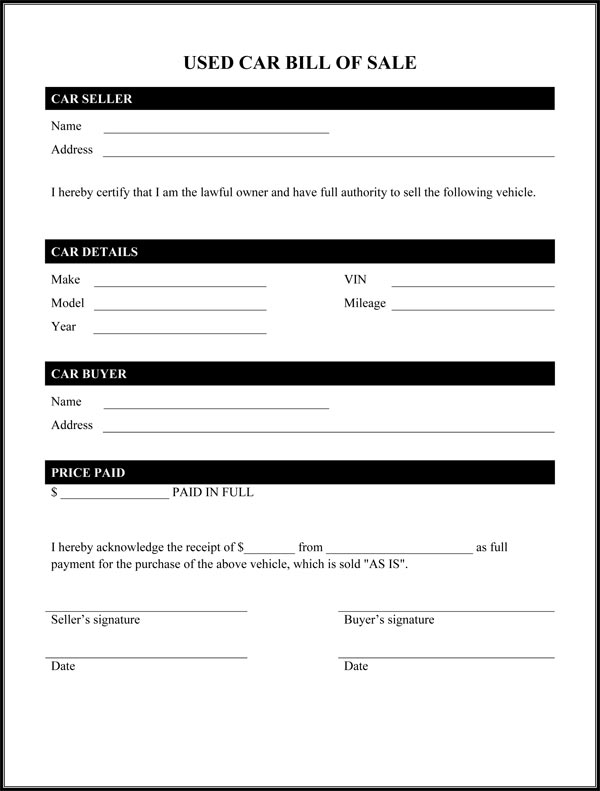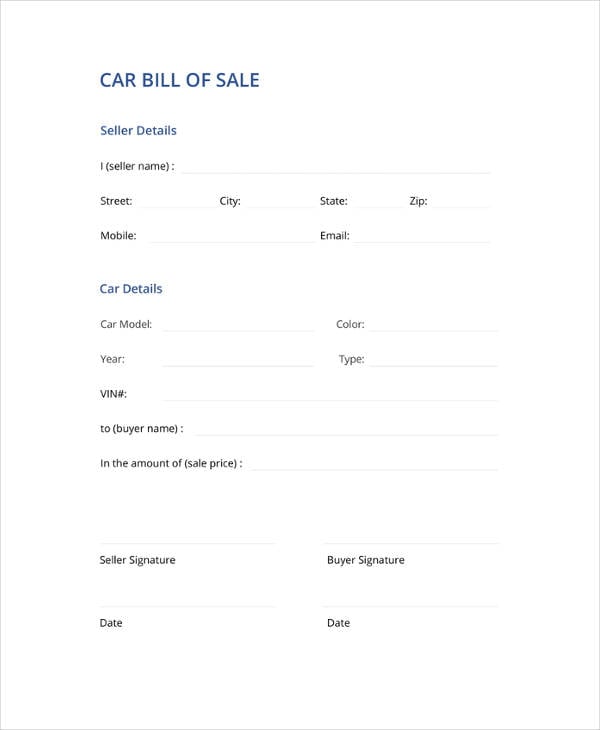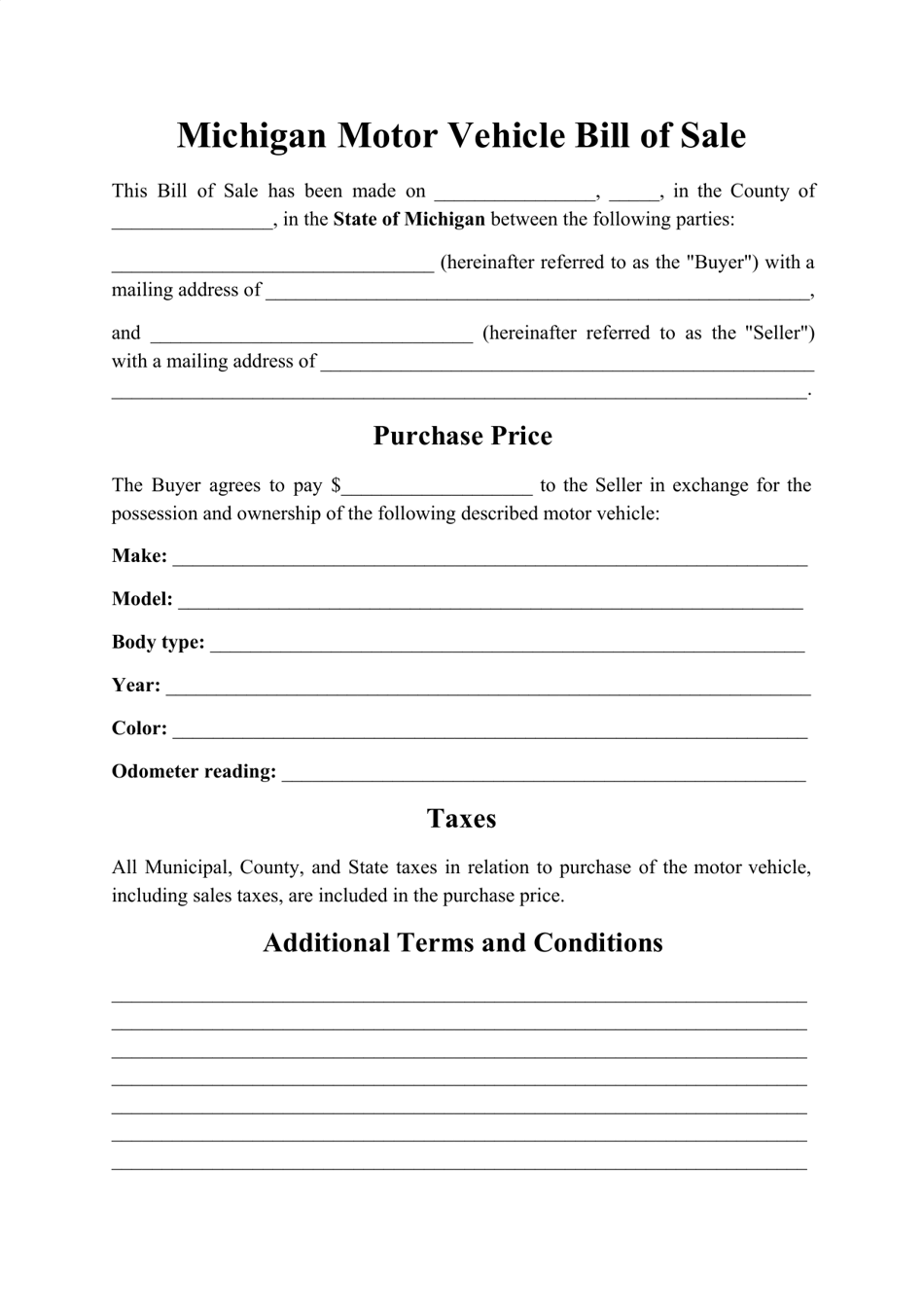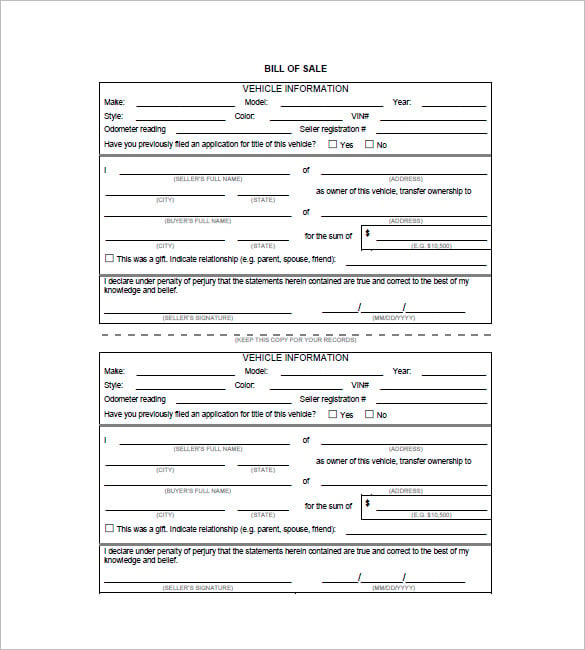

Bill of Sale for the Buyer of the Vehicleįor the buyer of the vehicle, the bill of sale will serve as both a reminder for the pending title transfer, as well as protection from any liabilities from the previous owner. This restricts the vehicle from being driven on public roadways unless the title has been transferred and new registration has been filled out. Upon receipt of the signed notice of sale, the DHSMV will then cancel the registration of the vehicle. It is the seller’s responsibility to visit the tax collector’s office and submit the notice of sale.


The seller will no longer be held liable for any ticket received by the new owner, as well as any accident involving the vehicle. Once the document has been completed, signed, notarized, and submitted, it frees the seller from the ownership of the vehicle and all the liabilities attached to it. The bill of sale serves as a form of protection for the seller of the vehicle.

The bill should be completed and signed by the seller before being signed by the buyer. For the buyer, the bill of sale serves as a basic requirement for either registering the vehicle or transferring the title of the newly-purchased vehicle. For a seller, it’s proof that a sale has been made, and that the owner surrenders the ownership of the vehicle to another person. Purpose of the Bill of Saleīills of sale benefit both the sellers and buyers of vehicles. While a bill of sale isn’t legally required, and doesn’t replace a title transfer, it is highly recommended and protects both the buyer and seller from fraud, theft, or mistakes. One of these documents is the bill of sale. When you’re buying and selling vehicles in Florida, there is a lot of paperwork that you need to complete and submit before you can successfully sell your vehicle or transfer the vehicle’s title under your name.


 0 kommentar(er)
0 kommentar(er)
